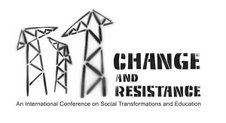Magdalena Bezmaterny
Monika Dulska
Anna Fiedorowicz
Monika Kołodziejczyk
University of Gdańsk
The aims of The Lisbon Strategy, signed in 23/24 March 2000, are supposed to modify the situation of Europe at the global market and make it capable to compete with the USA successfully. The Strategy influences such areas as European economy, education, employment, environment, transportation, telecommunication and the IT sector significantly. The Strategy is to promote liberal solutions both on national and supranational ground.
The conference speech would be based on the Power/knowledge relation in The Lisbon Strategy project, which the authors did at one of their university courses. There, the analysis concerned on how power shapes discourses in force and vice versa, how legitimate knowledge foster the hegemonic power expansion. We find the issue immensely important especially in terms of its selective potential, which obviously is not stated in the document of the Strategy.
At the conference we would like to demonstrate particular parts of The Lisbon Strategy, those which attracted our attention in terms of their assumed progress-leading role which is not necessarily beneficial for all the social groups of the European Community.
Summarizing, the work is focused on the hidden assumptions of the Lisbon Strategy. The conclusions of our analysis suggest that the project is derivative of the dominant economic discourse which shapes our social reality, hence it reinforces its hegemony. The analysis is based on the power discourse introduced by Michel Foucault.
Subscribe to:
Post Comments (Atom)

No comments:
Post a Comment